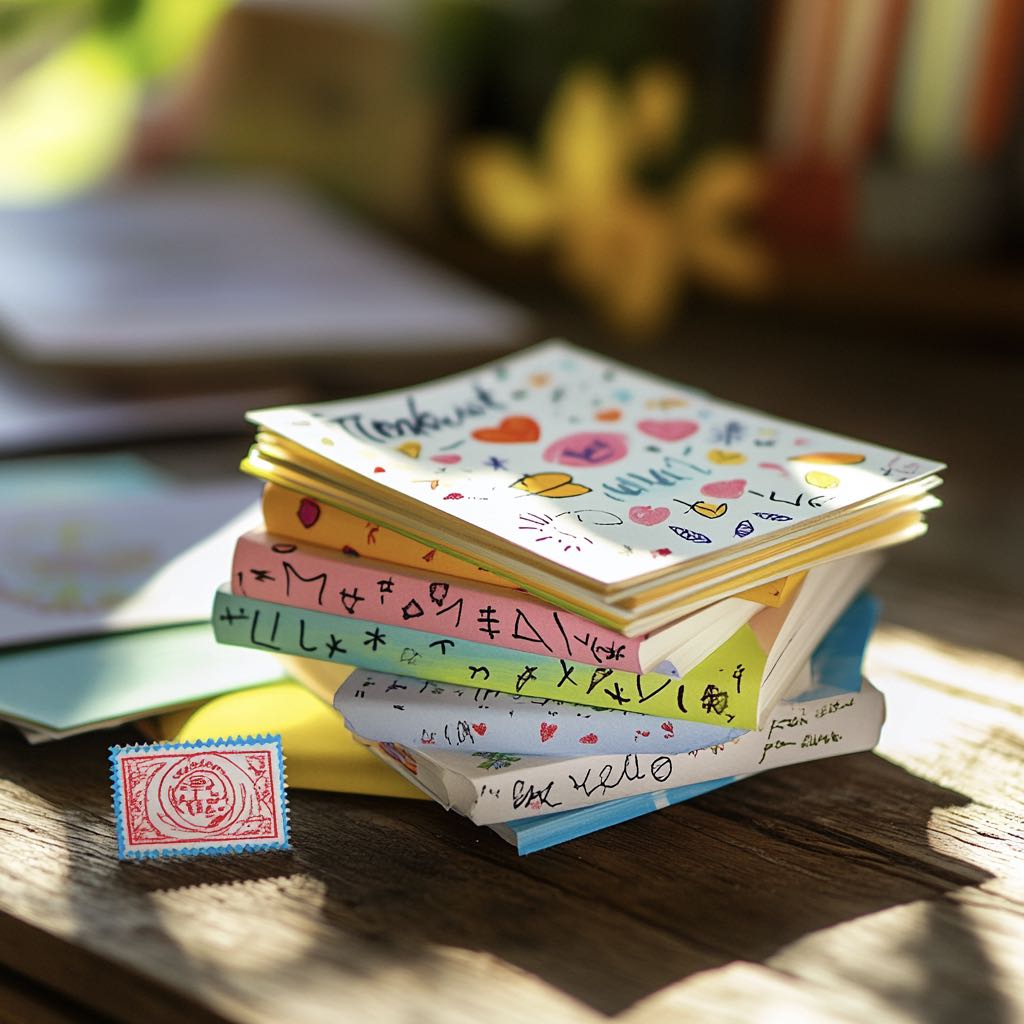What to Write in a Sympathy Thank You Card: A Gentle Guide for Tough Times
When life throws us a curveball, and grief settles in, even the simplest tasks can feel monumental. Among them? Penning those heartfelt sympathy thank you cards. It’s a moment where you want to express sincere gratitude, but your mind might be swimming with emotions. Believe me, I’ve been there. You’re probably thinking, “What on earth do I even write in a sympathy thank you card when my heart feels heavy?” It’s a common question, and honestly, it’s totally okay to feel a bit lost. This isn’t about crafting a literary masterpiece; it’s about genuine connection and showing appreciation for the support you’ve received during a tough time.
In this guide, we’ll walk through exactly what to write in a sympathy thank you card, offering practical advice, plenty of examples, and a dash of genuine understanding to help you navigate this sensitive task with grace. So, let’s take a deep breath together and figure this out.

The Heart of the Matter: What Should I Include in a Sympathy Thank You Card?
Alright, let’s get down to brass tacks. When you’re facing the daunting task of writing a condolence thank you note, you might wonder about the essential ingredients. Think of it like a recipe for comfort and gratitude. While there’s no strict formula, a few key elements can make your message truly meaningful.
First and foremost, aim for sincerity. This isn’t a formality; it’s a chance to acknowledge the kindness extended to you. Here’s a quick rundown of what usually makes a sympathy thank you card shine:
- A heartfelt greeting: Start with a warm and personal address.
- A specific mention of their kindness: This is where you acknowledge their particular contribution, whether it was a thoughtful gesture, a delicious casserole, or simply their comforting presence.
- An expression of your gratitude: A simple “thank you” goes a long way.
- A brief mention of how their support helped you: This adds a personal touch and shows you truly appreciate their efforts.
- A warm closing: Something that conveys your appreciation and acknowledges the relationship.
Now, let’s tackle some of those burning questions you might have about sympathy thank you message etiquette.
How Do I Start a Sympathy Thank You Card Message?
Starting can often be the hardest part, right? It’s like staring at a blank page, but with the added weight of grief. My go-to advice? Keep it simple and personal.
You can begin with:
- “Dear [Name],”
- “My dearest [Name],”
- “To [Name],”
Then, gently transition into your thanks. For instance, “Thank you so much for…” or “I wanted to express my sincere gratitude for…”

What Are Some Examples of Sympathy Thank You Card Messages?
Sometimes, seeing is believing, and having a few examples can really jumpstart your own writing. Remember, these are just starting points. Feel free to tweak them to reflect your unique relationship and feelings.
Here’s a table with some sample sympathy card wording examples:
| Recipient Type | Example Message |
|---|---|
| Close Friend | “Dear [Friend’s Name], Thank you for being such a rock during this incredibly difficult time. Your calls, visits, and just knowing you were there meant the world to me. I’m so grateful for your friendship and support after [Loved One’s Name]’s passing.” |
| Family Member | “My dearest [Family Member’s Name], Thank you for your unwavering love and support. It means so much to me to have you by my side. Your [specific act of kindness, e.g., help with arrangements, comforting words] truly made a difference.” |
| Neighbor/Acquaintance | “Dear [Name], Thank you for your thoughtful [flowers/meal/card]. Your kindness during this challenging period has been a great comfort. We appreciate your support.” |
| For a Donation | “Dear [Name], Thank you so much for your generous donation to [Charity Name] in memory of [Loved One’s Name]. It’s a beautiful way to honor their life, and your thoughtfulness is deeply appreciated.” |
| For Flowers | “Thank you for the beautiful arrangement you sent in honor of [Name]. They brought a sense of peace to the room and to our hearts.” |
| For Donations | “I’m deeply grateful for your generous donation in [Name]’s memory. It’s a tribute they would have truly appreciated.” |
| For General Support: | “Your support during this time has meant more than words can say. Thank you for your kindness and love.” |
How Personal Should a Sympathy Thank You Card Be?
This is a great question, and the answer is: as personal as feels comfortable and appropriate for your relationship with the person. For a close friend or family member, you can absolutely delve into more specific memories or feelings. “Your story about [Loved One’s Name] and the [specific memory] brought a much-needed smile to my face” is a wonderful personal touch.
For someone you don’t know as well, a more general but still sincere message is perfectly fine. The key is authenticity. Don’t force a level of intimacy that isn’t there, but always strive for genuine gratitude.
Is It Okay to Send a Sympathy Thank You Card Weeks or Months After the Funeral?
Absolutely! There’s no hard and fast rule about the exact timing, and honestly, grief doesn’t follow a strict schedule. While it’s generally good to send them within a few weeks to a few months, if life gets in the way, or if your grief is particularly overwhelming, it is always better to send a thank you for sympathy card late than not at all. People understand. They really do. A note that says, “I apologize for the delay, but I wanted to truly thank you for your kindness after [Loved One’s Name]’s passing” is perfectly acceptable.
Should I Mention Specific Gifts or Support in the Thank You Card?
Yes, absolutely! This is where your gratitude message for sympathy really shines. Mentioning specific gifts, acts of service, or emotional support shows that you noticed and truly appreciated their effort.
- “Thank you for the beautiful flowers. They truly brightened our home.”
- “The meal you brought over was such a lifesaver. We were so touched by your thoughtfulness.”
- “Your phone calls and listening ear made such a difference. I’m so grateful for your unwavering support.”
Even if it was just a presence, you can say, “Your presence at the service meant so much to me.” It really personalizes the thank you for support after loss.
How Long Should a Sympathy Thank You Card Message Be?
Think quality over quantity. A short sympathy thank you card message that is heartfelt and sincere is far more impactful than a lengthy, generic one. Often, a few sentences are all you need to convey your gratitude. Don’t feel pressured to write a novel. The goal is to express genuine thanks, not to hit a word count.
Can I Send an Email or Is a Handwritten Card Better?
In today’s digital age, this is a common dilemma. While an email might be quicker, a handwritten funeral thank you card generally carries more weight and conveys a deeper sense of personal effort and care. It shows you took the time, which is truly meaningful during a sensitive period.
However, if circumstances truly prevent a handwritten card (e.g., severe illness, living very far away, or an overwhelming number of cards to write), an email is certainly better than nothing. If you do opt for email, make sure it’s just as sincere and personal as you would make a physical card. Perhaps you could even follow up with a handwritten note later if possible.
What Tone Is Appropriate for a Sympathy Thank You Card?
The appropriate tone for a thank you card after bereavement is sincere, appreciative, and often a little subdued. It’s okay to acknowledge the sadness you’re experiencing, but the primary focus should be on gratitude. Avoid overly cheerful or overly mournful tones. Aim for a natural, respectful, and heartfelt expression of thanks. Think of it as a quiet conversation where you’re truly appreciating someone’s kindness.

How Do I Thank Someone for a Donation Made in Memory of My Loved One?
This is a wonderful gesture to acknowledge. When writing a thank you card for funeral donations, be sure to mention the charity by name if possible.
Example: “Dear [Name], Thank you so much for your generous donation to [Charity Name] in memory of [Loved One’s Name]. It means a great deal to us that you chose to honor their life in such a meaningful way. Your thoughtfulness is deeply appreciated.”
What Phrases Should I Avoid in a Sympathy Thank You Card?
While your intentions are always good, some phrases might be better left out. Avoid anything that feels generic, overly formal, or insincere. Also, try to steer clear of:
- “No problem” or “It was nothing.” (Even if you feel it wasn’t a big deal, their effort was important to you.)
- Overly lengthy apologies for delays. A simple “I apologize for the delay” is sufficient if needed.
- Jokes or lighthearted comments, unless you know the recipient extremely well and it’s absolutely appropriate for your relationship and the situation.
- Focusing too much on your own grief in a way that shifts the focus from thanking them.
How Do I Express Gratitude to Clergy or Officiants in a Sympathy Thank You Card?
Clergy or officiants often play a crucial role during a funeral or memorial service. When writing a thank you card wording for clergy after funeral, your message can express gratitude for their guidance, comfort, and the meaningful way they conducted the service.
Example: “Dear [Clergy’s Name], Thank you so much for your comforting words and for presiding over [Loved One’s Name]’s service. Your guidance and support during this difficult time were invaluable and deeply appreciated. We are so grateful for your compassion and wisdom.”
Can I Include a Hopeful or Positive Note in a Sympathy Thank You Card?
Yes, you absolutely can, but do so subtly and authentically. A hopeful note can be a beautiful way to acknowledge the future while still expressing gratitude for past support.
For example: “We’re so grateful for your kindness, which has helped us immensely as we begin to heal.” Or, “Your support reminds us of the strength of community, and we are hopeful for brighter days ahead.” Keep it gentle and reflective, not overly exuberant.
What if I Didn’t Know the Deceased Well—How Do I Write the Card?
This is a tricky one, and it happens. Perhaps you’re writing on behalf of a family member, or someone extended sympathy who primarily knew the deceased. In this case, focus on the support offered to you and the family, rather than a deep connection with the deceased.
Example: “Dear [Name], Thank you for your thoughtful card and condolences after [Loved One’s Name]’s passing. Your kindness to our family during this difficult time is deeply appreciated.”
How Do I Close a Sympathy Thank You Card Politely and Warmly?
The closing should reiterate your appreciation and leave the recipient with a feeling of warmth. Some common and effective closings include:
- “With heartfelt thanks,”
- “Sincerely,”
- “Warmly,”
- “With gratitude,”
- “Yours truly,”
- “With much appreciation,”
Followed by your name, or your family’s name if it’s a joint card.
Final Touches: Tips for Writing Your Thank You Cards
You’ve got the essence, now let’s add a few more flourishes to make your writing tips for sympathy thank you cards stand out.
- Keep it brief but sincere: As we’ve discussed, a short, heartfelt message is often more impactful.
- Handwritten is best: It truly conveys your personal effort and care.
- Proofread: Even a small typo can distract from your message.
- Use quality cards: A nice card adds to the thoughtfulness.
- Don’t overthink it: The most important thing is to express your gratitude. Your loved ones understand this is a difficult time.

Wrapping It Up: Your Heartfelt Thanks, Delivered
Phew! We’ve covered a lot, haven’t we? Writing sympathy thank you cards can feel like another hurdle in a marathon of grief, but it’s also a powerful way to acknowledge the love and support that surrounds you. Remember, there’s no right or wrong way to grieve, and there’s no pressure to be perfect in your expressions of gratitude. Just be you, be sincere, and let your heart guide your pen.
The simple act of sending a thank you note for condolences can bring a quiet comfort, both to you and to those who extended their kindness. It closes a chapter, acknowledging the compassion shown to you, and allows you to move forward, knowing your gratitude has been expressed.
So, take a deep breath, pick up that pen, and know that each word you write is a testament to the connections that truly matter. And hey, if you found this guide helpful, why not share it with someone else who might be navigating this tender process? We’re all in this together, after all.